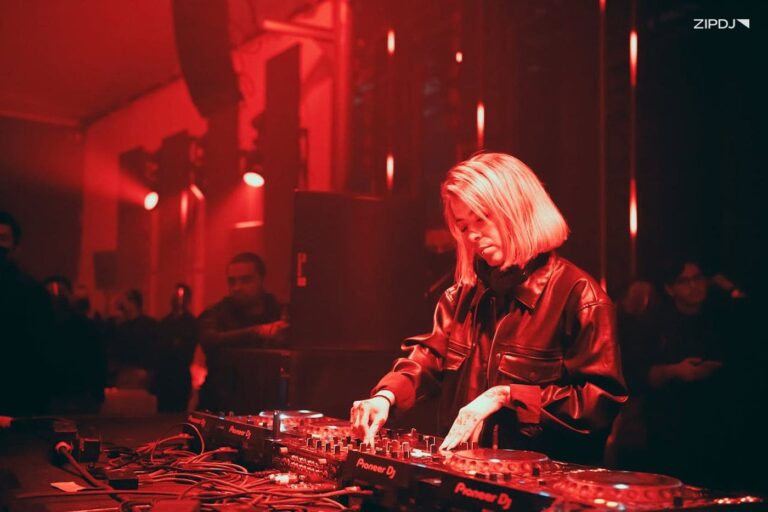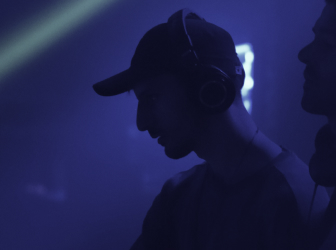Do DJs Have To Pay Royalties? A Detailed Guide For 2025

Navigating the complexities of copyright infringement and licensing laws can confuse DJs who want to ensure they’re playing music legally.
From a public performance license to paying for copyrighted material, getting it right is essential if you want to avoid breaking the law.
To help you play music publicly, we’ve compiled this detailed guide to creating DJ sets that don’t break music copyright laws.

Do DJs Have To Pay Royalties? A Detailed Guide For 2025
Playing recorded music in a public setting requires an understanding of copyright laws and royalties, from wedding DJs to professional club DJs.
Failing to get this right can jeopardize your career, with potentially hefty fines for anyone caught performing with licensing from music publishers.
So, whatever type of DJ you are, here’s a breakdown of the protocol you need to follow and any DJ royalties you have to pay in 2025:
Royalties For Music Played
Playing copyrighted music in a public place, whether this is a bar, club, or corporate event, typically requires you to pay royalties for the privilege.
Performance royalties are often factored into DJ prices as part of their contract with the venue, whether playing CDs or digital media files.
These royalties are designed to ensure that the original artist is compensated for their efforts when their music is played in a public performance.
While some artists never receive royalties for their work, this is uncommon, with most songs played in a public space generating income through licensing.
Who Is Responsible For Paying Royalties?
There’s a common misconception that professional DJs are responsible for paying royalties since they’re responsible for building their music library.
In fact, in the vast majority of cases, the venue where the music is being performed is responsible for obtaining the correct licenses to cover royalties.
For the United States, this is covered through Performing Rights Organizations (PROs) and their relationship with venue owners around the country.
Two examples of American PROs are the American Society of Composers, Authors, and Publishers (ASCAP) and Broadcast Music Inc. (BMI).
A professional DJ also often has an understanding with a record label, receiving new releases from other artists to promote.
Likewise, if you’re DJing at home, you are not responsible for paying royalties for any track played unless you share them online for public consumption.

Getting Around Copyrighted Music
While there is a perception that DJs can avoid copyright infringement outside of house parties, this is largely a misconception that needs to be addressed.
Understanding the implications of copyright infringement is one of the fundamental aspects of navigating the DJ industry and achieving success.
If you’re unsure whether the audio files you’re using are eligible for public performance royalties, consider finding royalty-free music.
Alternatively, you should ensure you obtain permission from the license holder and check with the venue to ensure they’re fully covered.
Playing Music That Is Royalty-Free
DJs who don’t have the budget to pay royalties for their entire music collection can track down a variety of music that doesn’t require such payments.
Online remixes are one example of royalty-free music that can be picked up and performed without worrying about using copyrighted material in your sets.
Spend time researching the best music discovery websites to see what resources DJs typically use for music that doesn’t require performance licenses.
Getting Permission To Play Music
Most music played in a public setting typically requires permission from the rights holder, but there are some situations where legal issues are less of a concern.
A popular method DJs use to avoid copyright protection issues is to use a DJ pool, which covers all music rights in a subscription model.
The history of DJ pools has been closely linked to DJing, as they grant full performing rights for venues, radio shows, and online podcasts.
Alternatively, if you’re clear on what musical works you want to play, you can seek permission from the specific record labels and artists who own the rights.
If you’re performing at a special one-off event, you can seek out a limited license to cover a single DJ set for the occasion.
Obtaining Proper Licensing
The nature of licensing can vary from one country to another, with copyright law in one territory often differing from the rules elsewhere.
This makes it vital to research the specific licensing requirements in your area before you put on an event to be clear on your legal right to play the music.
Likewise, if you’re learning how to become a radio DJ, the rules may be different for DJs who perform in venues, so researching the distinction is paramount.
Fortunately, there are broad DJ licensing services that cover all of the bases and save time and hassle navigating complex legal matters.
In addition to being a great resource for licensed music, you can use DJ pools for promotion with full royalty coverage and access to the latest releases.
If you’re hosting a specific, non-licensed event, you can inquire directly from the license holders about individual song licensing.
Copyright & Royalty Permissions Vs DJ License
Lastly, it’s important to understand the distinction between copyright and royalty obligations and a separate DJ license.
Copyright and royalty permissions are when a work is licensed to be used in a particular way and will vary depending on the music’s owner.
A public performance license typically grants DJs specific permission to play a song – or elements of a song – in a public setting.
While most DJs work in venues that cover this for you, some types of DJs, such as mobile DJs, may need to handle the license themselves.
If you’re unsure if this applies in your territory, research your local laws to verify the rules to avoid facing potentially costly legal action.
Summary
Understanding the royalties and fees required for music performed in a public performance will save you time and money when launching your DJ business.
By following the guidance in this article and performing your own research, you can play all the music you like with the appropriate licenses and performance royalties.
Make sure you verify the rules and regulations in your local region since these can vary from one place to another depending on the relevant laws.
Not a member ?
Join Today for Unlimited Music Downloads. Visit zipdj.com for more information.



